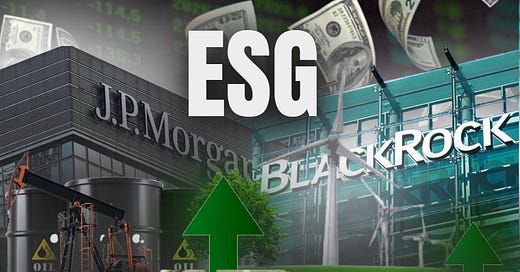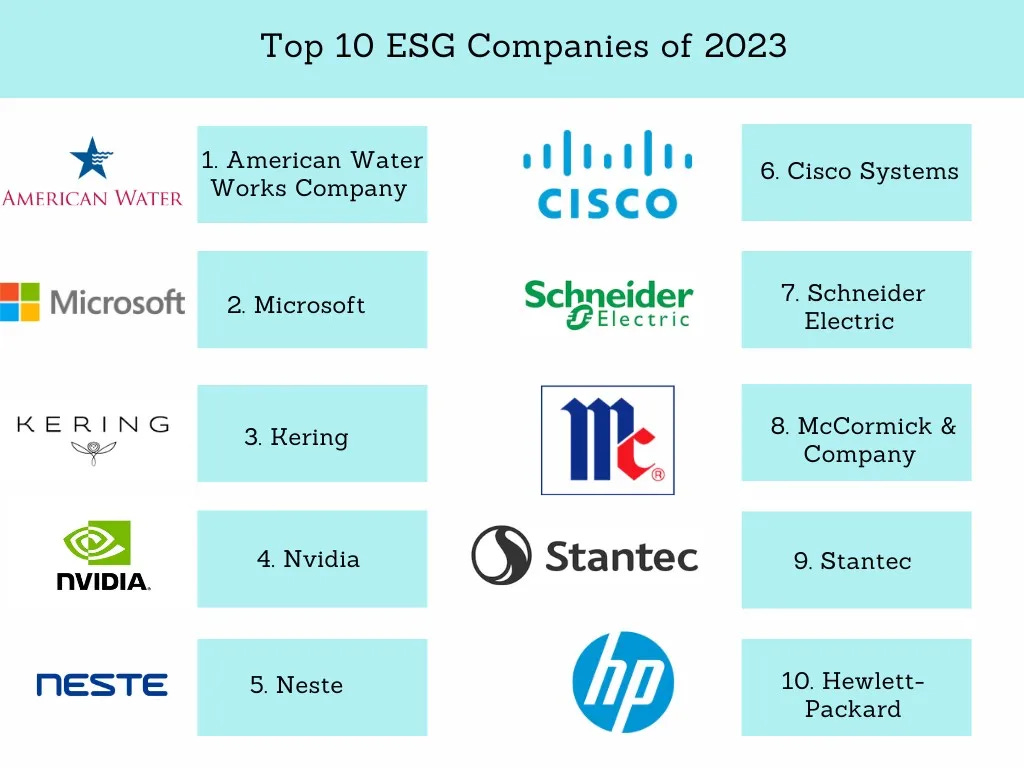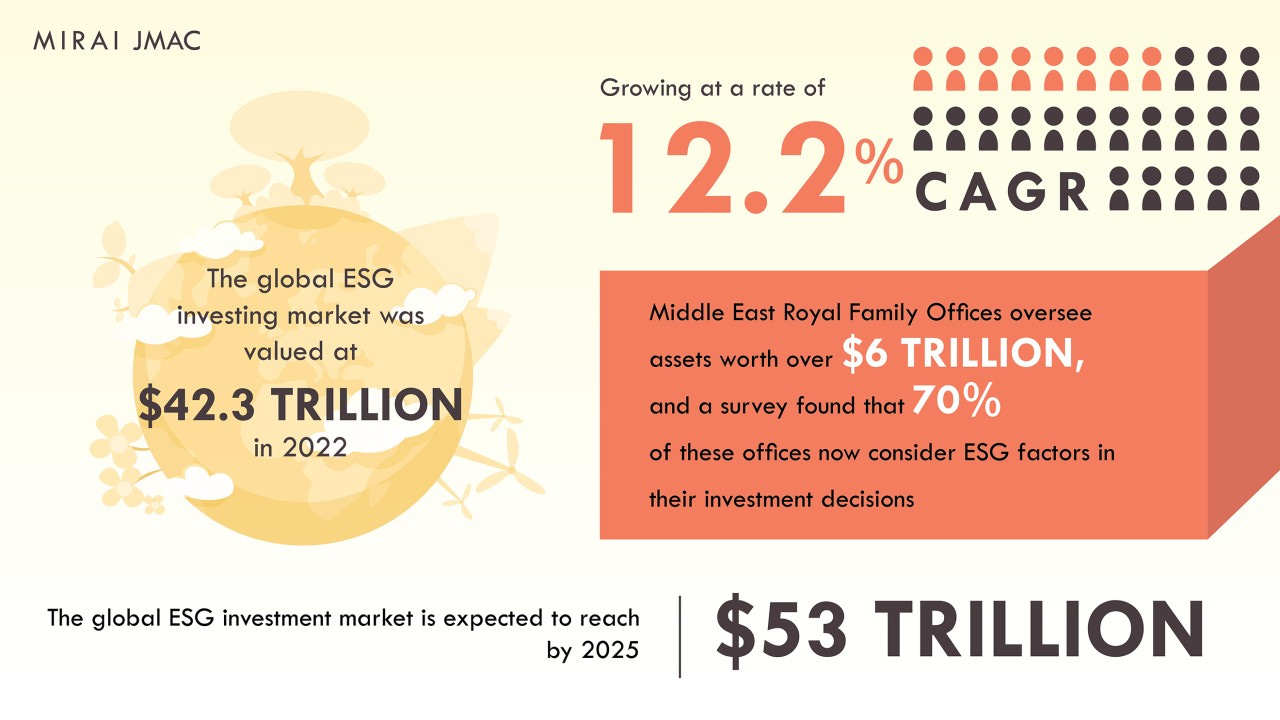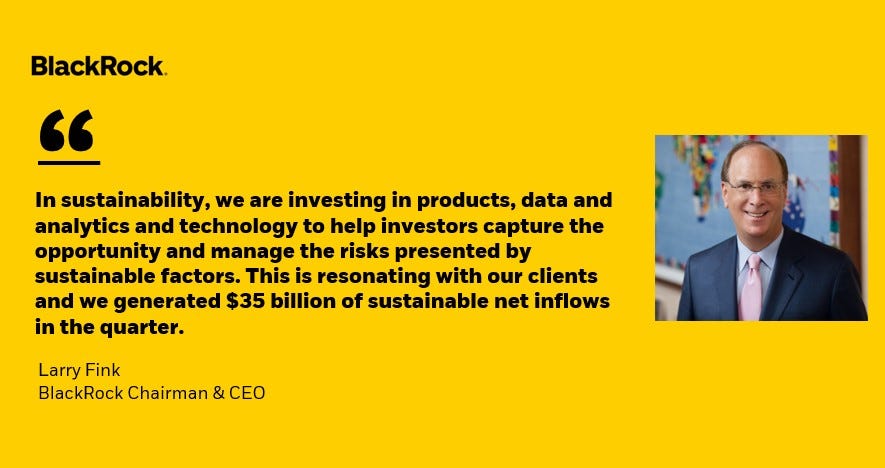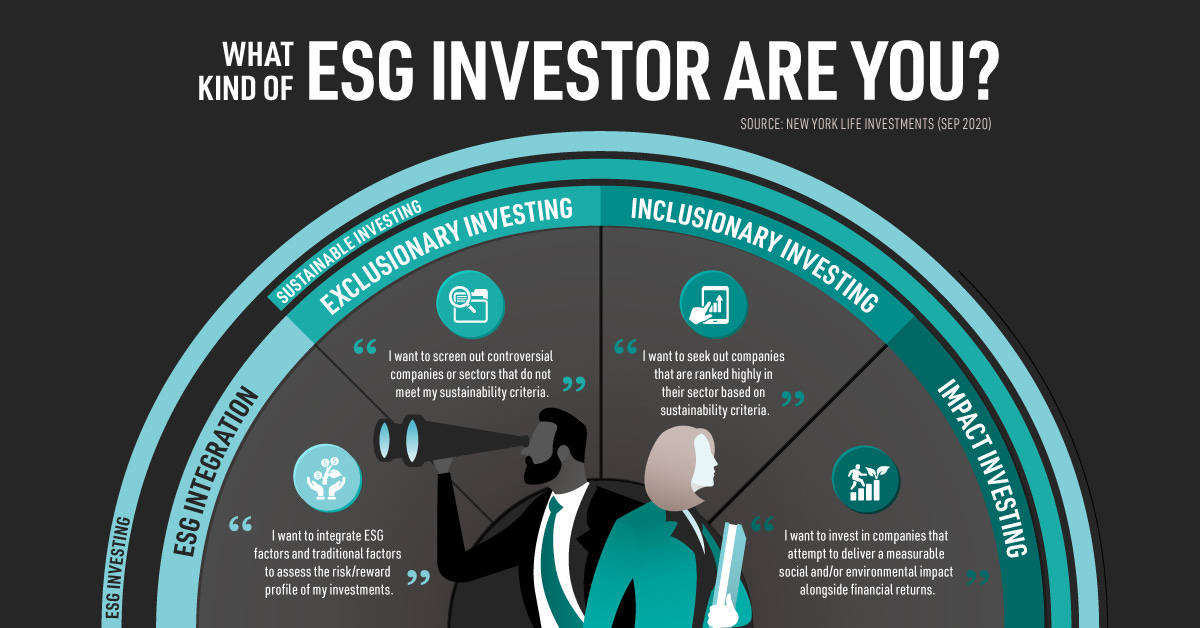ESG in Finance: Unlocking Sustainable Investing
Discover the power of ESG in finance—transforming investments for a sustainable future. Uncover its impact, the BlackRock influence, and real-world success stories.
Summary:
Introduction
Pros of ESG in Finance
Cons of ESG in Finance
Real-Life Examples
Why is ESG Growing
BlackRock's Influence
Public Perception and Future Implications
Conclusion
Introduction
In recent years, Environmental, Social, and Governance (ESG) criteria have emerged as key considerations in the world of finance, revolutionizing investment strategies and reshaping corporate practices. ESG represents a set of standards that investors use to evaluate a company's sustainability and ethical impact, considering its environmental responsibility, social initiatives, and governance practices.
Src: Tender Alpha
Pros of ESG in Finance
Risk Mitigation: ESG factors help investors identify and manage potential risks associated with environmental, social, and governance issues. This risk-aware approach contributes to more informed investment decisions.
ESG is a risk-mitigation strategy at its core. It helps the investor evaluate the material risks of a company's future performance based on its environmental, social, and governance practices. For example, a company that doesn't address its employees' grievances may lead to a workers' strike. (The Earth & I)
Long-Term Value Creation: Companies with strong ESG performance are often better positioned for long-term success. By prioritizing sustainability and ethical practices, businesses can enhance their resilience and create enduring value.
We expect growth in ESG investing to continue through 2022, and well beyond. (JP-Morgan)
Positive Social Impact: ESG investing allows individuals to align their portfolios with their values. Investments in companies promoting positive social and environmental change contribute to a more sustainable and equitable world.
Src: Sigma Earth
Cons of ESG in Finance
Lack of Standardization: The absence of standardized ESG metrics makes it challenging to compare and evaluate companies consistently. Investors may face difficulties in assessing the true impact of ESG initiatives.
Sustainalytics: Sustainalytics is a leading ESG research and analytics firm. It produces ESG scores on a scale of 0 to 100, with a higher score indicating better environmental, social, and governance performance. (Investopedia)
Greenwashing Concerns: Some companies may engage in "greenwashing" by presenting a façade of environmental responsibility without implementing substantive changes. This can mislead investors who are genuinely seeking sustainable opportunities.
When it comes to investing, greenwashing is the use of misinformation to gain investor confidence around a company's ESG claims. Greenwashing red flags include purposefully vague copy, award claims and scientific terms and buzzwords. (US Bank)
Short-Term Focus: Critics argue that ESG metrics may not always align with short-term financial performance. Investors may need to balance the long-term benefits of sustainable practices against immediate financial returns.
Real-Life Examples
Microsoft's Commitment to ESG
Microsoft exemplifies robust Environmental, Social, and Governance (ESG) practices, emphasizing sustainability and ethical governance. The company's ambitious commitment to becoming carbon-negative by 2030 and eliminating historical carbon emissions positions it as a leader in the tech industry's sustainable transformation.

Src: The Monthly Fool
NVIDIA's Innovation with ESG in Mind
NVIDIA showcases a dedication to ESG principles through its innovative technologies and responsible business practices. With a focus on energy efficiency in its products and efforts to foster diversity and inclusion, NVIDIA stands as a forward-thinking company integrating ESG considerations into its core strategies.
Src: Esg Advocate
Why is ESG Growing
ESG's growth stems from its demonstrated ability to generate alpha, challenging the notion that it solely pursues non-profit objectives. Studies reveal that ESG strategies, both passive and active, exhibited remarkable resilience during the market downturn in Q1 2020, outperforming conventional benchmarks and attracting substantial investments. Notably, 24 out of 26 ESG index funds surpassed their counterparts across various markets. The millennial generation's increasing commitment to ESG investing further propels this growth, with an estimated USD 15 trillion to USD 20 trillion expected to be allocated to US-domiciled ETFs in the next 20-30 years. Millennials, driven by ethical considerations, are demanding more from their investments, indicating a shift towards a future where financial decisions align with environmental and social values. This trend suggests a promising trajectory for ESG investments as a dominant force in the evolving landscape of finance.
In today's world, investors are increasingly looking for ways to align their financial goals with their values. ESG investing has emerged as a popular strategy that allows individuals to invest in companies that prioritize environmental sustainability, social responsibility, and strong governance practices. (Linkdin)
Src: Linkedln
BlackRock's Influence
BlackRock, the world's largest asset manager, has been a prominent advocate for ESG integration. Through its investment stewardship activities, BlackRock engages with companies to encourage ESG improvements. The firm utilizes its substantial influence to push for increased transparency, accountability, and sustainable practices within the corporate world.
Src: X.com
Public Perception and Future Implications
While ESG is gaining momentum, public perception varies. Some view it as a critical driver of positive change, while skeptics question its impact on financial performance. The growing influence of ESG, particularly through major players like BlackRock, suggests a significant shift in the financial landscape towards more sustainable and responsible investing.
Critics portrayed ESG investing as primarily motivated by political concerns and a potential drag on returns. Additionally, some critics have raised concerns about the complexity and reliability of ESG metrics. (Nasdaq)
Conclusion
In conclusion, the rise of Environmental, Social, and Governance (ESG) criteria signals a transformative era in finance, steering investments toward sustainability and ethical stewardship. As investors increasingly recognize the value of ESG, it becomes a catalyst for resilient, socially responsible, and environmentally conscious business practices. Despite challenges, the powerful influence of industry leaders like BlackRock underscores the momentum toward a future where responsible investing not only shapes portfolios but also drives positive change.
Src: Advisor Channel
As ESG transforms the financial landscape, how can individuals leverage sustainable investing to shape a more ethical and resilient future?
let me know in the comments.
Dive Deeper: Unlock Insights with Recommended Articles on ESG and its impact on Finance and Investing:
If you have inquiries about the finance, business, geopolitical and economic realms, the article crafting process, or suggestions for future topics, don't hesitate to reach out. Your support is valued and appreciated.


